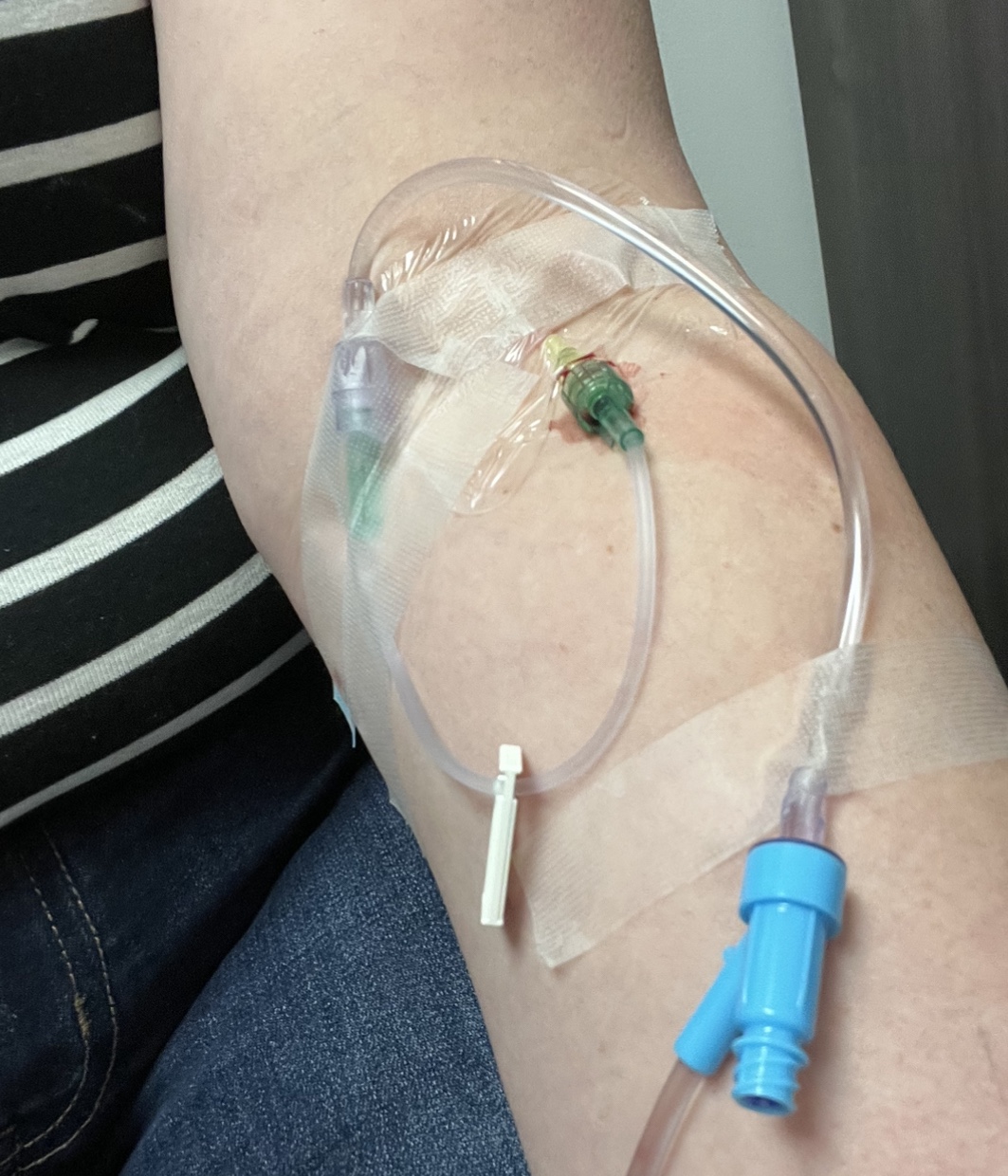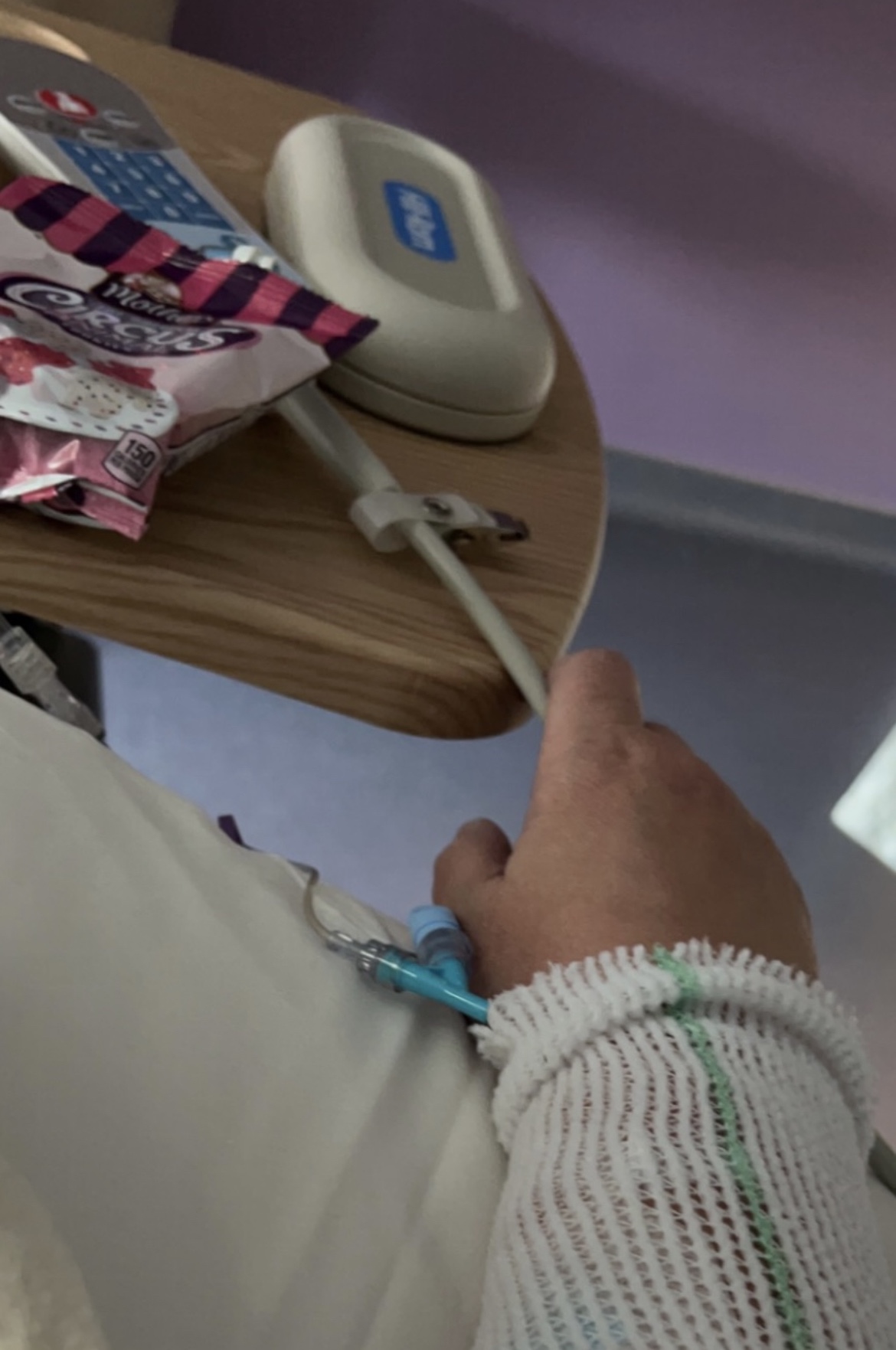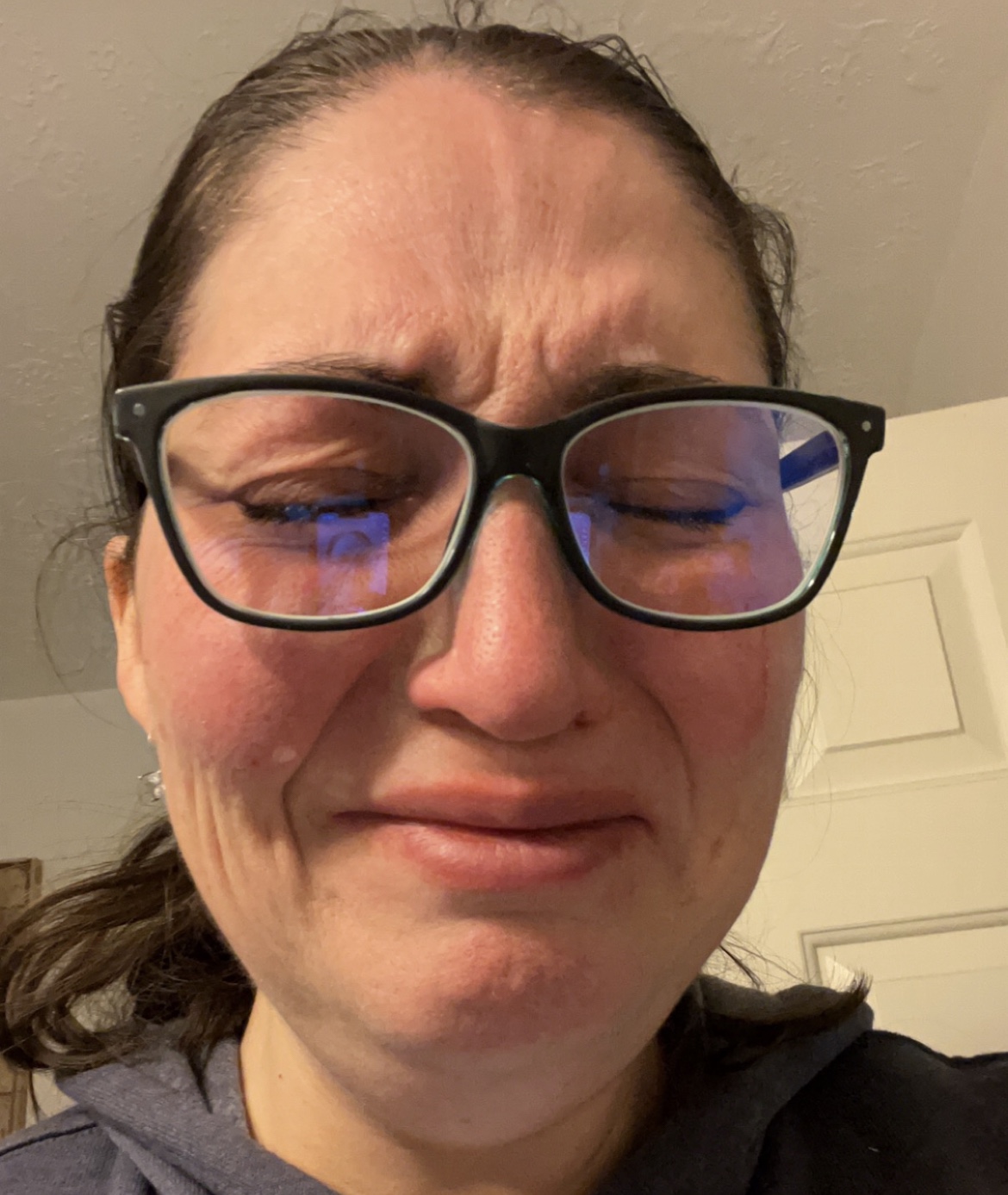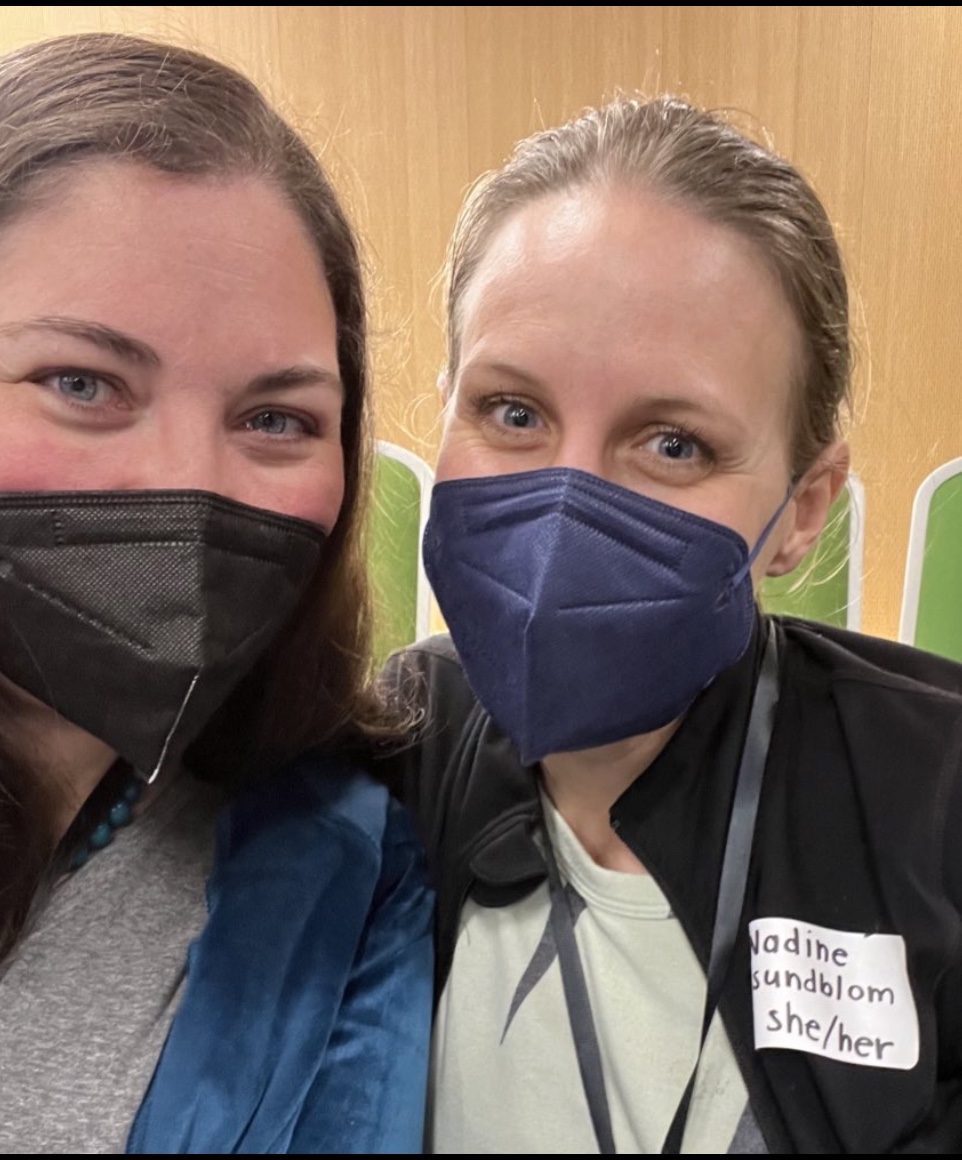 It’s one thing to be sick with a virus that’s walloped the world for 2 years now. But’s entirely another to deal with the fallout of what people say to you about said pandemic. Now that I don’t feel like my life is immediately in danger, I am getting so hurt and frustrated over what people say to me about how I should process my experience.
It’s one thing to be sick with a virus that’s walloped the world for 2 years now. But’s entirely another to deal with the fallout of what people say to you about said pandemic. Now that I don’t feel like my life is immediately in danger, I am getting so hurt and frustrated over what people say to me about how I should process my experience.
I get it…EVERYONE is tired of talking about SARS-COV-2, everyone is sick of being inconvenienced. Everyone is sick of being patient for life to go back to normal. Everyone is sick of having their “freedoms” stripped away. Some thought that initial few weeks to “Flatten the Curve” was too big an ask, and refused to make any changes in their behavior.
But there’s a subset of people who have been so cautious. Who believe that precautions taken were not drastic enough. Who feel personally attacked by those who refuse to protect others. Who have comorbidities and autoimmune conditions, who are immunocompromised, who are concerned about the possible lifelong complications with long covid, and those who generally want to be good global citizens.
In the Twitter community in Utah, there is an ongoing joke about being an Extreme Masker, based on a comment from Governor Spencer Cox. Many of us use the #ExtremeMasker hashtag as a source of pride, as it makes it easy for us to find other likeminded, cautious, and empathetic individuals.
Okay Twitter, can anyone beat my cloth mask collection? 60 of them right here, not including the ones my husband and daughters use. I switched to N95/Kn95/KF94s last month, so these are relics. Also, should I make them into a quilt? #maskup pic.twitter.com/aNatVrLLZs
— Nicole Bullock (@cuteculturechic) January 14, 2022
 Now that I’m 5 weeks into my recovery, even people who love me dearly are tired of my pain and suffering. And I understand…it’s emotionally exhausting to have someone in your life that always has crazy hard shit happening to them. Ever since I survived my bout of postpartum sepsis and Acute Respiratory Distress Syndrome, my health has never been the same. I have chronic fatigue/EBV from my bout of mono in 2013. I have a propensity for chronic UTIs that require hospitalization, like my lengthy hospital stay with pseudomonas aeruginosa while I was pregnant with Lucy.
Now that I’m 5 weeks into my recovery, even people who love me dearly are tired of my pain and suffering. And I understand…it’s emotionally exhausting to have someone in your life that always has crazy hard shit happening to them. Ever since I survived my bout of postpartum sepsis and Acute Respiratory Distress Syndrome, my health has never been the same. I have chronic fatigue/EBV from my bout of mono in 2013. I have a propensity for chronic UTIs that require hospitalization, like my lengthy hospital stay with pseudomonas aeruginosa while I was pregnant with Lucy.
But why do so many people insist on blaming the victim?
I’m a super fun, serial networker with a giant community of friends and loved ones. My online interactions have led me to spend time with hundreds of people I met through Twitter and blogging. I thrive on my interactions with friends, acquaintances, and the person who smiles at me in the gas station parking lot who eventually becomes my gym buddy (#truestory).
But on the flip side, I trudge through more illness, anxiety, and exposure to tragic situations than most people I know. But I refuse to let those hard things beat me down, and I’ll always try to have a smile on my face.
It’s painful and disappointing to have people that only want to interact with me in the good times. Who will dance and karaoke and have a grand old time at a party. And then they are silent when you say you’re in the hospital, or need a hand with a favor to get through an illness. The good news is that I have the emotional intelligence enough to know which individuals are only good for a night partying. And let’s be honest, I haven’t had many nights like that since Lucy was born.
Those who justify their poor behavior through the pandemic simply by exclaiming “It’s all just political!” can just bite me. There is no freedom in having your veins connect to an IV line for treatments. There is no freedom in medical bills so high, that a family with good insurance and a 6-figure income will still struggle to cover the bills. Can you imagine where we would be at if people had been more kind, patient, empathetic, and willing to be inconvenienced? I’m raising a toddler through this, and I didn’t realize there were so many more toddlers in adult-sized bodies.
I just finished reading the biography of Jacinda Ardern, the Prime Minister of New Zealand. I’ve been gaining an obsession with New Zealand over the years, and I wonder how differently my pandemic experience would have been under the leader of an empathetic leader like Jacinda.
 The American Experience that I waded through in 2020 was one full of nationalism rather than patriotism. Do you know the difference? I heard an explanation that “Patriotism is being proud of your country for the good that it does in the world. Nationalism is being loyal to your country, no matter how much evil it does in the world.”
The American Experience that I waded through in 2020 was one full of nationalism rather than patriotism. Do you know the difference? I heard an explanation that “Patriotism is being proud of your country for the good that it does in the world. Nationalism is being loyal to your country, no matter how much evil it does in the world.”
I love my country and have been afforded many privileges and opportunities as an American, but I often find myself longing to live in a society that is less focused on the individual.
I moved back to Utah from Michigan in January 2020, just a few weeks before the pandemic. I’ve always considered Mormons to be the best people to be around in the crisis, because they’re just so gosh darn sweet and helpful. But my experience through the Covid pandemic has really shaken my faith in others from my culture. The flags being flown in my neighborhood were a visual indication of the people I wanted to surround myself with, and I’m drawn to the flags with more color than just red, white, and blue.
Getting vaccinated (which the Prophet Russel M. Nelson referred to vaccines as a “literal Godsend”) and wearing a mask to be a “good global citizen” was just a bridge too far. I keep looking for people putting the Christ in Christian, but I see more selfishness than selflessness. I can assure you that you’ll see freedom differently when you’re in a body that is plagued by chronic illness. Even more so if your 3 year old child, who is too young to be vaccinated, develops a severe inflammatory response to Covid and may have complications for years to come.
 I went to the memorial service for a Twitter friend named Kris earlier this month. Because of the pandemic, I wasn’t ever able to meet them in person. Kris had so many of the qualities that I hope to exhibit, especially empathy. They were known for buying anonymous gifts off the Amazon wishlists of people who had been unkind to them. As I interacted with people at the memorial, most of whom are in the LGBTQIA* community, it warmed my heart to see all the pandemic precautions taken. It was such a normal thing for everyone to be in a mask, and the most comfortable I’d been in a public group setting in two years.
I went to the memorial service for a Twitter friend named Kris earlier this month. Because of the pandemic, I wasn’t ever able to meet them in person. Kris had so many of the qualities that I hope to exhibit, especially empathy. They were known for buying anonymous gifts off the Amazon wishlists of people who had been unkind to them. As I interacted with people at the memorial, most of whom are in the LGBTQIA* community, it warmed my heart to see all the pandemic precautions taken. It was such a normal thing for everyone to be in a mask, and the most comfortable I’d been in a public group setting in two years.
I had someone very important in my life text me a few days ago. She has some hard-core pandemic fatigue, and really could only handle being cautious for a short amount of time. It’s important to know your limits, and I know she has coped with a difficult two years the best she can. She asked me how I was doing, but also told me that she can’t handle my medical details. She said “I am really sorry things are tough. We all really hoped you wouldn’t get covid for this very reason. Absolutely will keep you in my prayers.”
It set forth a flood of tears. For someone who loves me so much, it’s hard to see that the grim realities of my life are also a terrible burden. And she isn’t the only one that I’ve had a similar interaction with. Is it worth replying to messages for people just trying to be nice, but honestly can’t handle my reality?
So as we continue to endure the pandemic, I encourage you to try something. If you know someone is sick with Covid, but you don’t have the bandwidth to handle details, simply send a message that says “I love you and you are important to me.” Because when you ask how I’m doing, but then actually don’t want to know, it feels so icky.
Don’t tell them Covid is political. We know this. Because the politics were against protecting the individual, only “freeing” the individual from responsibility from their actions.
Don’t tell them that you’re “SO DONE” with Covid. As a long-hauler, I don’t know if I’ll ever be done with Covid.

